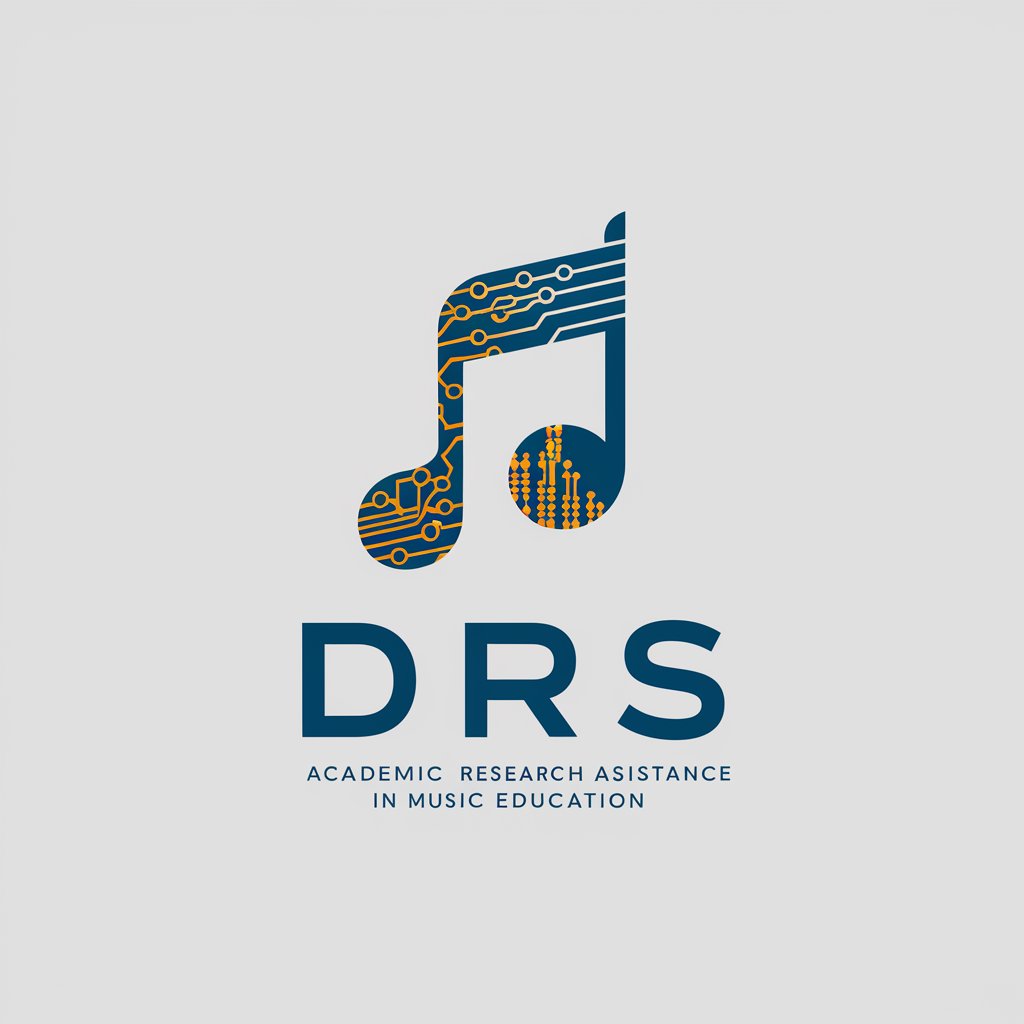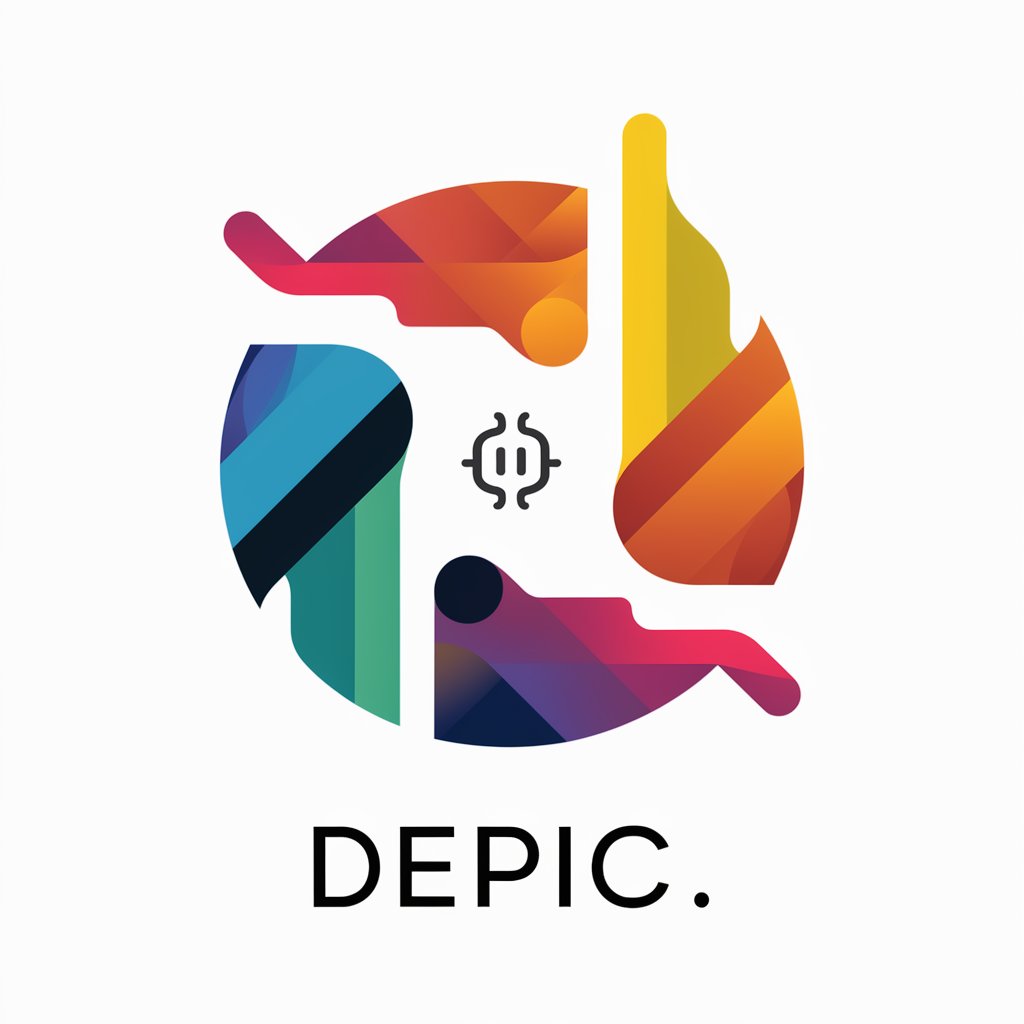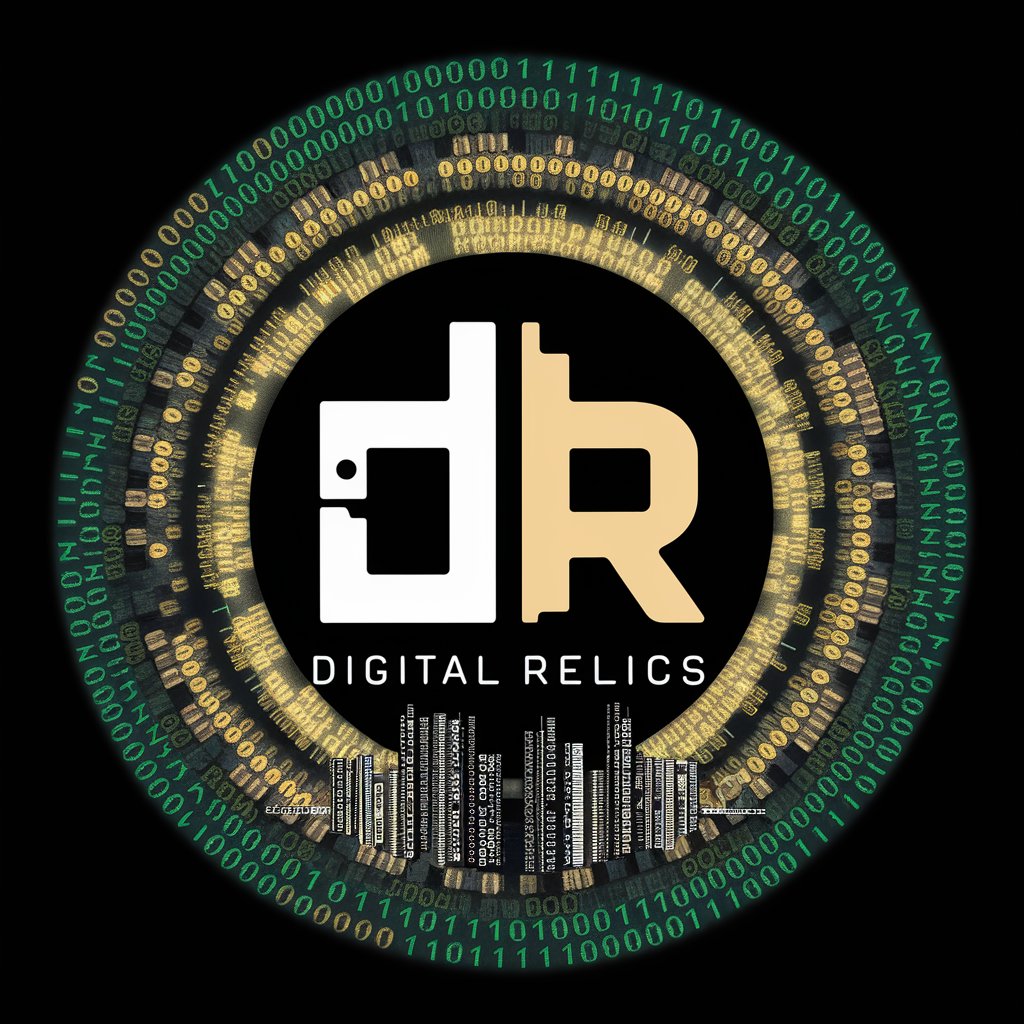
DRS - Academic Research Tool

Welcome! I'm here to assist with your academic research in music education.
Elevate Research with AI-Driven Insights
Develop a study design that addresses the integration of self-regulation in music education...
How can innovative pedagogies enhance motivation in instrumental music learning...
What are the key advancements in mobile technology-supported music education...
Analyze the impact of creativity and music on the quality of later life...
Get Embed Code
Introduction to DRS
DRS, or the Design and Research Support system, is a specialized tool created to aid in the development and design of academic studies, particularly within music education. Its primary purpose is to enhance research projects by providing structured guidance on study design, systematic review integration, and theoretical framework development. DRS is adept at tailoring research approaches to include innovative and disruptive pedagogies, examining music education efficiency, and exploring the role of music in enhancing life quality and creativity in later years. For example, if a researcher is unclear about incorporating self-regulation in a study on music education, DRS can suggest methods and frameworks to weave this element systematically into the project. Powered by ChatGPT-4o。

Main Functions of DRS
Development of Study Designs
Example
DRS helps formulate a quasi-experimental design for a music education study that includes pretest and posttest measures to assess learning outcomes and creativity. This design could be used to evaluate the impact of a new mobile app designed to support instrumental music learning.
Scenario
A university music department wants to investigate whether using specific mobile technologies enhances students' learning experiences. DRS proposes a study design that isolates the effects of the technology and provides valid, reliable results.
Integration of Systematic Reviews
Example
DRS can assist in integrating systematic reviews that summarize advancements in music education technology, providing a basis for a new study on mobile learning applications.
Scenario
A researcher is looking to establish a theoretical framework on mobile-supported music education. DRS facilitates the identification and summarization of existing literature, helping highlight gaps that the new study will address.
Theoretical Framework Development
Example
DRS guides the definition and integration of complex concepts like 'educación caórdica' and 'comprovisation' into the theoretical basis of studies, ensuring these are clearly explained and used consistently throughout the research.
Scenario
An educational theorist is exploring innovative teaching methods in music education and needs to develop a grounded theoretical framework that includes emerging pedagogical theories. DRS supports the structuring of these theories within the research.
Ideal Users of DRS
Academic Researchers
Researchers in music education and related fields benefit from DRS by obtaining a structured approach to designing their studies, ensuring that all relevant educational and psychological aspects are considered. This is particularly useful for those looking to integrate new technologies or pedagogies into traditional music education settings.
Educational Technologists
Professionals who develop and test new educational tools and methods, especially in the realm of music education, use DRS to better understand the impact of their innovations. DRS helps them design studies that accurately measure the effectiveness and engagement of new teaching tools.
Policy Makers in Education
Education policy makers who require evidence-based research to form policies would find DRS invaluable. The system's ability to design rigorous, scientifically valid studies aids in generating reliable data that can influence policy decisions regarding educational curricula and teaching methods.

Guidelines for Using DRS
Access DRS
Visit yeschat.ai for a complimentary trial; no signup or ChatGPT Plus required.
Explore functionalities
Navigate through the tool to explore its functionalities such as academic writing assistance, data analysis, and systematic reviews in music education.
Set your objectives
Define your research problem or writing goal to tailor the tool's capabilities to your specific needs.
Utilize features
Make use of the built-in templates for writing and research, and input your specific data or query parameters for customized assistance.
Evaluate results
Review the outputs for quality and relevance, and iterate your queries as needed to refine the results for optimal outcomes.
Try other advanced and practical GPTs
Toxic- Non toxic plants for cats
Ensuring feline safety with AI-driven plant identification

Sport Predictor
Predictive Insights with AI-Powered Analysis

Coding Notes Assistant
Harness AI to empower your coding journey.

Laravel Copilot
AI-powered assistant for Laravel developers

Laravel Expert
AI-powered solutions for Laravel developers

Laravel Expert
AI-powered Laravel Guidance

News Flash Bot
AI-powered Real-time News Digest

Tamilan
Powering Communication with AI

Script Assistant
Elevate Your Storytelling with AI

Space Monkey
AI-powered exploration of imagination and creativity

Trivia Master
AI-powered trivia for learning and fun

Architectural Professor
AI-powered Architectural Mastery

Detailed Questions & Answers about DRS
What is DRS primarily used for?
DRS is primarily used for developing academic studies, especially in music education, integrating systematic reviews to enrich research problems, and assisting in the design of quasi-experimental studies.
How does DRS integrate systematic reviews?
DRS integrates systematic reviews by compiling relevant literature, highlighting commonalities and differences, and identifying gaps in the research. This process aids in the theoretical development of topics like self-regulation in music learning.
Can DRS help in defining key concepts in research?
Yes, DRS assists in clearly defining key concepts early in the problem statement, ensuring that theoretical underpinnings such as 'educación caórdica' are well articulated and understood.
What type of research design is recommended by DRS for studying music education?
DRS recommends a quasi-experimental design, typically with a pretest-posttest control group setup, to effectively measure impacts on learning achievement and creativity.
How does DRS support modifications in research methodologies?
DRS facilitates the detailed documentation of methodologies, including the selection and implementation of appropriate measurement instruments, and supports the adjustment of research methods based on systematic review outcomes.




